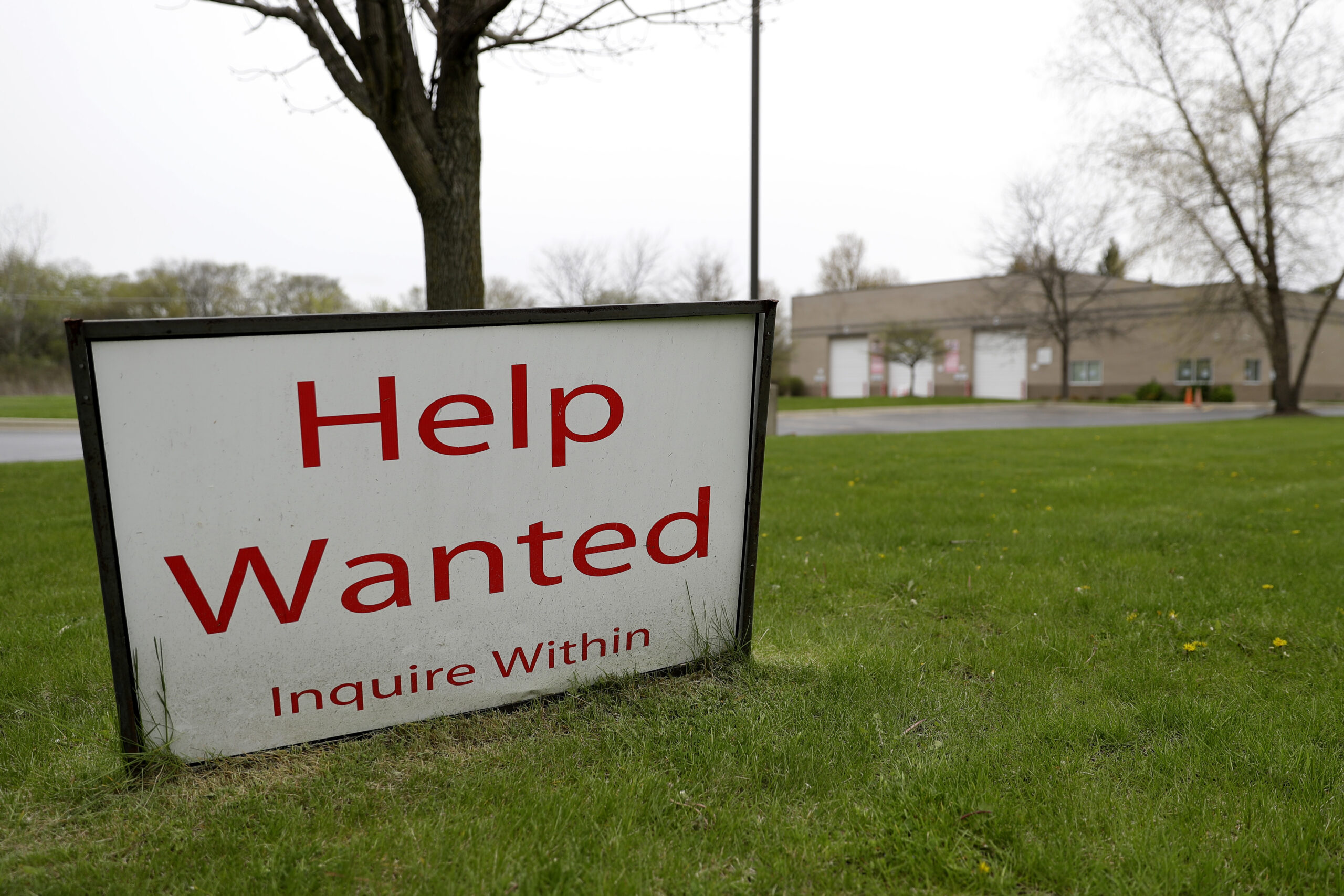How Georgia’s Unemployment Benefits Have Changed During The Pandemic

“On Closer Look,” Emory University professor Tom Smith discussed his outlook for Georgia’s summer economy.
Nam Y. Huh / Associated PRess
The combination of federal and state government unemployment benefits available to Georgians during the pandemic is more than normal.
In some cases, those benefits are also more than those workers might be making on the job, and that’s prompting questions about whether these benefits will discourage people from coming back to work and about Georgia’s minimum wage.
Ryan Pernice owns a few restaurants north of Atlanta. Because of the pandemic, he was forced to furlough two-thirds of his staff. As they’ve slowly started reopening, he’s had to call down his list of furloughed employees to bring them back on.
“And it may be we go through two to four names before we get someone who’s ready to come back to work,” he said.
He doesn’t know for sure why; maybe people are pivoting. Some say they just don’t feel safe working.
But a question has come up: Could it be because of the unemployment benefits people can qualify for right now?
Unemployment insurance now can include up to $365 from the state plus $600 from the federal government, totaling nearly $1,000 per week.
In addition, unemployed contract workers can qualify for $600 per week in federal unemployment. Normally, they can’t qualify at all.
“It’s a weird spot for us to be competing with unemployment. So our first look is to make sure everyone has what they need and is getting the benefits they need to survive and pay bills. But at some point, we’re going to need to staff full restaurants,” Pernice said.
Georgia Labor Commissioner Mark Butler is hearing the question from other employers. Especially, he said, since unemployment benefits have been lengthened during the pandemic and could be again.
“You know if you keep extending unemployment benefits once the health scare is over, and things get back to normal to a point where you’re incentivizing people to stay home at almost $1,000 a week, obviously there’s going to be some difficulties there,” Butler said.
In an effort to encourage people to return to work, Georgia instituted a new rule that allows applicants to earn up to $300 per week without it counting against their benefits. It’s a rule that Butler said the state is considering keeping permanently.
Alex Camardelle is an analyst with the Georgia Budget and Policy Institute, which advocates for a strong safety net. He thinks that rule is a good idea. But he said the “myth” that unemployment benefits will keep people from working is “really harmful.”
“The idea that a deal — some people have referred to it as a ‘sweetener,’ the $600 sweetener — is going to disincentive people going to work, that’s one of the oldest tricks in the playbook to encourage disinvestment in the safety net,” he said.
Ordinarily, he said, Georgia ranks low on national unemployment benefits lists because of low weekly benefits, its normal duration of benefits (up to 20 weeks; because of the pandemic it’s now 26) and a normally proportionately small number of people actually receiving benefits.
Camardelle said he understands where business owners are coming from but counters that putting dollars in people’s pockets will stimulate the economy.
For him, this begs a bigger question about the status quo of Georgia’s $7.25 per hour minimum wage.
“We’ve got to think about the fact that it’s not OK to pay people less than what they may be receiving now on unemployment insurance,” he said. “It was never OK.”
Right now, unemployment benefits can range from $15 to $23 per hour.
Currently, 12% of Georgia’s workforce is unemployed.
This story was produced in part with funding from the Ravitch Fiscal Reporting Program at the Newmark Graduate School of Journalism at CUNY and is part of a nationwide project on how state safety nets are handling the coronavirus economic fallout.








